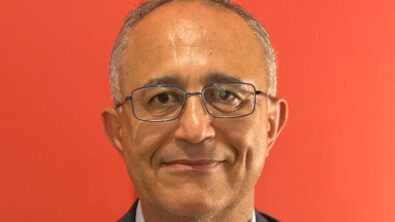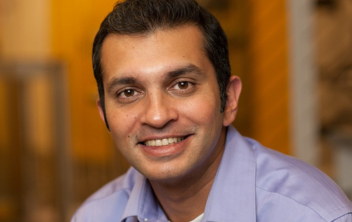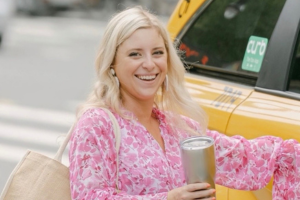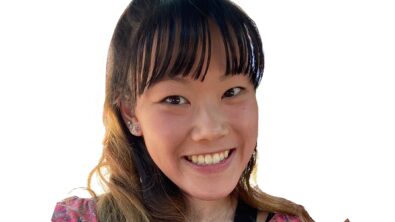Al Zeitoun


Imagine you’re talking to a senior operations colleague with a kitchen sink of credentials – an engineering Ph.D. fluent in three languages with several decades of project management experience around the world. Maybe he’s an author and speaker and possesses a handful of rarefied professional designations. Now ask him about the trait that’s most needed to achieve our SaaS transformation. How does he respond? By talking GANTT charts or KPIs? If it’s Al Zeitoun, who checks all those boxes and then some, the answer is one that’s surprising for how poorly it fits into a spreadsheet – empathy. Al sat down to talk about Brené Brown, why soft skills are misnamed, and why we all live in the project economy now.
What’s your role here?
Al: I’m on Suzanne Kopcha’s strategic planning, market and business intelligence team. I lead strategic operations, or STOPS. We build our organizational capacity to deliver software’s most critical programs. We’re in charge of the Siemens Digital Industries Software masterplan and the new product introduction process, also of boosting the rigor in reporting and best practices, including program management skills.
Okay, so what’s the place of empathy in our software operation or Siemens generally? I thought we were all about engineering?
Al: We are! And it’s beautiful to be solid in engineering…it’s a huge asset to our organization. But, look, there can be a conflict between an engineering-driven culture and the focus on making a real difference in the way customers buy our products and interact with us. So in an important way, our SaaS transformation hinges on our ability to empathize deeply with our customers also with each other. Right now, we need to speed up our experimentation in working across segments and shaping solution packages that address changing demands in the market. This means making some mistakes and being vulnerable, which can run counter to the perfectionism and conservatism inherent in engineering. I’m a fan of Brené Brown. I believe that the more we practice the vulnerability she talks about, the nimbler we’ll be in incubating and experimenting with our SaaS offerings. Ultimately we’re all in the people business. For years I worked on large, capital-intensive energy projects in the Middle East, and that was the big takeaway even in that context. It’s certainly true in software. I grew up in an engineering family and have a Ph.D. in civil engineering, but the biggest inflection point in my career came when I cured myself from being just an engineer.
It’s inspirational to be in software, which is front and center in Siemens’ overall transformation into a technology-focused company.
– Al Zeitoun
Well, you’re credentialed in your post-engineering life. You are a Program Management Professional, PgMP, one of just five in North America for Siemens. And you are a PMI Fellow, one of just 60 worldwide. You had a book published in 2022. Can you give some program management observations based on what you’ve seen here also just some PM-advice that might apply generally in software?
Al: This is a great organization with talent everywhere. We have very strong leaders across the business units. In my opinion, we have the right mission – to be bold in providing our offerings in a much more customizable, cloud-based format. And it’s inspirational to be in software, which is front and center in Siemens’ overall transformation into a technology-focused company. As for general advice, program management 101 is about working horizontally and the challenge in doing so is to really make sure things are integrated end-to-end and in such a way that includes inputs from all the proper stakeholders and segments.
You spent years in a range of high-profile consulting positions. What do you say to a rank-and-file employee who might cringe at the idea of a consultant showing up with a clipboard at my desk and saying ‘so, tell me what you do?’
Al: Ha! I’m working hard to overcome any consultant stigma. I don’t talk to the team, but am part of the team. Really, I’m just modeling being an internal leader and demonstrating how what we do in strategy is relevant beyond our organization. One lesson is that we all increasingly live in the project economy. Every organization realizes that delivering value to customers is about working through fluid, matrixed project teams. Leadership today is much more situational and requires people who drive connectedness and work to understand context. Ideally, each of us should be able to answer how our current role is related to overall business strategy.
I was worried that talking to an operations/PM guy would be mostly about checklists. I wasn’t expecting the empathy bit. Speaking of which, I have a teenager who sometimes saps my own empathy. What kind of advice can I give her about career planning? Not that she would listen!
Al: It’s about T-shaped skills. Go deep in a particular technical discipline, whatever that may be. Then also go broad by getting exposure to a range of experiences and working with a variety of people. And acquire these so-called soft skills – coaching, listening, leading small groups, influencing – which are really misnamed. These are power skills for the future.
What’s next for you?

Al: Well, I joined Siemens in April 2022. As I come up on my one-year mark, I am excited to be a part of making the right changes happen for the business. I want to build on what I have learned to shift from any backseat perception to a place of activating direct and sometimes uncomfortable conversations about change. My message to myself is – urgency matters!
QUICK TAKES
Anything about you that might surprise colleagues?
I’m a certified scuba diving instructor, though on my first dive, I almost died from a self-inflicted injury.
Music and book recommendations?
“Sense and Respond,” by Jeff Gothelf and Josh Seiden.
Favorite food?
Molokhia. It’s an Egyptian vegetable dish that I cook often and my family enjoys.
One technology you couldn’t live without? And one you wish the world would hurry up and invent?
I love technology…it’s just our behaviors in dealing with it that causes problems. For example, I’m glad Netflix exists but wish I watched it less. I don’t know if it’s the metaverse, but I’m looking forward to technology that allows collaborating better together as humans.
Advice for taking care of oneself?
Number one – stretching! Also, look for ways to have meaningful human interactions as much as possible.


